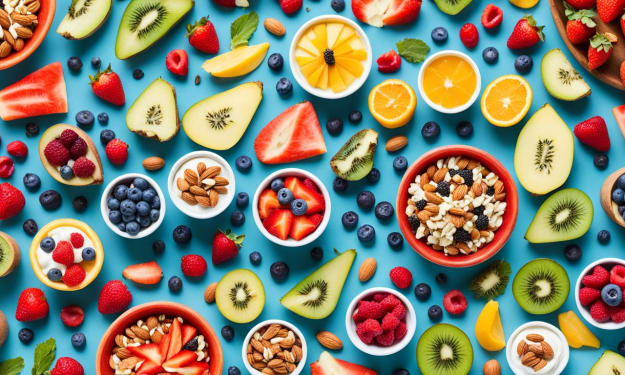Carrot is the enemy of cancer
People who eat foods high in vitamin A have a significantly lower risk of developing cancer, especially stomach, lung, and bladder cancer.

It is largely true that the properties found in an innocuous vegetable like carrot are so remarkable that they can be used to save lives such as cancer prevention. During the last few years of research, it has been It has been found that carrots and other fruits and vegetables such as oranges, green leafy vegetables and fruits actually have the hidden ability to reduce the growth of cancer.
It's actually a compound found in carrots and other fruits and vegetables. The compound found in carrots is none other than beta-carotene, which is considered the best of the more than 400 carotenoids and is found in abundance. Carotenoids are yellow-green and orange pigments that are widely distributed in plants.
Carotenoids were first discovered in carrots 160 years ago. The term "carotene" is also derived from the word "carat".
Beta-carotene, also known as pro-vitamin A, is partially converted to vitamin A in the human body. About one-sixth of it is 'vitamin A', which is an essential factor in controlling cell metabolism and Promotes the growth of healthy cells and also protects the inner and outer lining of the body - the skin - the membrane cells of the blood vessels of the lungs and throat.
Nutritionists have recently discovered that beta-carotene has all the health benefits of regular vitamin A, including some of its own. Unlike vitamin A, beta-carotene overdose does not cause toxicity. It occurs because the body monitors its conversion to vitamin A as needed. Research into the role of beta-carotene in cancer prevention has been ongoing since the 1930s, but a revolutionary step came at that time.
At the same time, 15 investigations were conducted in Israel, Norway, Japan, China, France, Iran and the United States.
These studies found that people who ate foods high in vitamin A were significantly less likely to develop cancer, particularly cancers of the stomach, lungs, esophagus, colon, colon, and bladder. of
A striking discovery was that the list of anti-cancer foods that kept coming up were dark orange and dark green vegetables and fruits. No conclusive link between vitamin A and beta-carotene had been discovered until 1981. Richard Peto and colleagues from the Imperial Cancer Research Fund's Cancer Studies Unit, Oxford, England.
Wrote a provocative article on this subject in the journal "Nature".
In his article, Peto opined that among the hundreds of foods that contain carotenoids, it was beta-carotene that pushed vegetables and fruits to the point where they were considered to significantly reduce cancer rates. Became in slimming foods.
His research clearly indicated that beta-carotene, not vitamin A, was responsible for the dramatic protection against lung cancer.
It was initially assumed that the conversion of beta-carotene to vitamin A is what makes it anti-cancer, but the issue is more complicated than that.
Unlike vitamin A, beta-carotene is an antioxidant. This means it can scavenge dangerous supercharged oxygen molecules that run around the body and cause damage to normal cells.
In 1987, the research done by the late Marylin Menks, Ph.D., of the Johns Hopkins University School of Hygiene and Public Health, proved to be a milestone. In the light of this research, Dr. Marylin had stated that beta-carotene in the arteries of the body The lower the flow, the more susceptible a person is to developing lung cancer.
Dr. Merlin and his co-researchers used the few blood samples they had taken in 1974 to analyze them for beta-carotene. It was given blood.
It was found that 99 of them were suffering from lung cancer.
Then, when they compared the blood levels of beta-carotene in lung cancer patients with the blood levels of beta-carotene in people who were not affected by the disease, they found that those with the least amount of beta-carotene had the least amount of beta-carotene. Those with high levels of tha were 2.2 times more likely to develop lung cancer than those with high levels.
Another surprising correlation emerged from this study. It was found that low levels of beta-carotene in the blood were dramatically associated with squamous cell carcinoma, an early stage of lung cancer. It is one of the most common killers of cigarette smokers.
People with the lowest levels of beta-carotene in their blood are four times more likely to develop cancer from smoking than those with the highest levels of beta-carotene.
The discovery of beta-carotene is so promising that the US National Institutes of Health is now providing so much funding that the study being launched is the largest population study ever to test this hypothesis. Will experiment with beta-carotene
About the Creator
MUHAMMAD ALAM
this profile special for giving your information please give me feedback
Enjoyed the story? Support the Creator.
Subscribe for free to receive all their stories in your feed. You could also pledge your support or give them a one-off tip, letting them know you appreciate their work.






Comments (1)
Hey there, just wanna let you know that this needs to have the disclaimer added to the beginning or ending, stating that it was created with the help of AI 😊